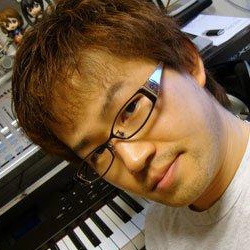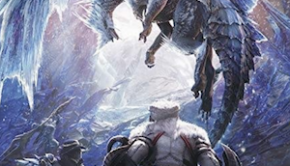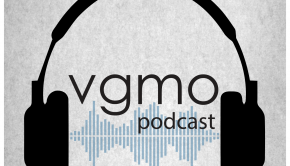Masami Ueda Profile
 |
Also Known As: 上田雅美 (うえだまさみ) |
| Date of Birth: November 19, 1974 (Hyogo) |
|
| Residence: Tokyo |
|
| Game Works: Resident Evil, Devil May Cry, Okami, Bayonetta |
|
| Official Site: PlatinumGames |
History
| Organisation | Type | Tenure | Role |
| Capcom | Game Developer | 1995 – 2004 | Composer |
| Clover Studio | Game Developer | 2004 – 2007 | Sound Director, Composer |
| PlatinumGames | Game Developer | 2007 – | Sound Director, Composer |
| GE-ON-DAN | Artist Collective | 2010 – 2011 | Member |
Biography
Masami Ueda is a versatile composer known for leading major soundtrack productions at Capcom, Clover Studio, and PlatinumGames. Born in November 19, 1974 in Amagasaki, Ueda has a rich musical background, having learned to play the piano and trumpet during his childhood and listened to a wide range of music through his adolescence. After graduating from high school, he pursued studies in computer music at CAT Music College from 1993 with the intent of becoming a video game composer. Ueda was delighted to be accepted into the sound team of Capcom in 1995 and soon started work on the little-known arcade title Look and See. He was subsequently asked to work on the groundbreaking survival horror title Resident Evil under the lead of Makoto Tomozawa. While a co-composer on the title, he developed a strong understanding of the creative vision of the series and impressed seniors such as Shinji Mikami with a number of mature horror compositions he wrote for the climax of the score. As a result, he was the only composer asked to return to the sequel thereafter, this time in a leading role.
Ueda created the score for 1998’s Resident Evil 2 in a different manner to its predecessor. He was asked by director Hideki Kamiya to suitably portray the more realistic environments, thrilling action, and sleepless terror featured throughout the game. As a result, he developed a more symphonic sound on the headline tracks and filmic cues, while offering a range of minimalistic soundscapes elsewhere to set a dark suspenseful ambience. Furthermore, he introduced a memorable main theme – a chilling three note motif in its simplest form, a richly shaped melody in its more elaborate renditions throughout the soundtrack – to represent the relentless terror, particularly the various malformations of G. Following this success, he composed the vast majority of Resident Evil 3. The score largely maintained the style of its predecessor in order to capture the gloom, desperation, and menace of Raccoon City’s human and zombie residents. However, Ueda decided to shift the focus from melody to rhythm; in particular, one snare drum roll recurs through the entire score to capture a sense of the city’s martial fate.
Ueda was involved in a number of other projects during his later years at Capcom. The artist reflected his versatility by contributing some high quality hip-hop tracks for Trick’N Snowboarder (aka Tricky Sliders) using voice sample libraries. He subsequently created the majority of the music for Kamiya’s subsequent epic, Devil May Cry. Ueda aimed for the core of the soundtrack to be ‘upbeat and cool’ in order to represent the fast-paced action and Dante’s personality, but he nevertheless aimed to capture the gothic setting and dark story. Given the contrasting elements of the game, he built a fusion score amalgamating different stylistic elements – including orchestral, techno, rock, ambient, gothic, and world music – while still retaining an emphasis on strong melodies and rhythms. His exuberant approach was facilitated by the technological specifications of the PlayStation 2. In smaller roles, he also contributed a single track on the Game Boy Advance remake of Super Ghouls ‘N Ghosts and a promotional arrangement of Gyakuten Saiban 3’s score.
In 2004, Ueda joined his colleagues to head the music team of Clover Studio, an independent Capcom-funded development studio. He had roles on the upbeat and humorous fusion soundtracks to Viewtiful Joe and Viewtiful Joe 2. His personal contributions were limited to a handful of mostly brief event themes, though he was integral in conceiving the series’ distinctive sound as a supervisor to composers Masakazu Sugimori and Sayaka Morita. However, Ueda spent the majority of his time at Clover Studio working on Kamiya’s Okami. He gave particularly serious consideration on how to approach the project given its unique healing focus and Japanese-influenced artistic style. While composing its debut trailer, he resolved to create music that would simultaneously sound Japanese-styled and soothing, while ignoring the surprisingly detractive theoretical principles of traditional composition. Given the decision to underscore each event in the game intricately, the score was also unprecedented for its size. Despite being well-received, the sales of Okami were disappointing and Clover Studio was controversially dissolved in 2007.
Ueda regrouped with former employees to form the independent development company PlatinumGames (earlier known as Seeds), funded by Sega. As the most senior member of the composition team, he has influenced the musical direction of the majority of the company’s projects so far. In a direct role, he reunited with Hideki Kamiya once again on Bayonetta. He depicted an alluring witch in a modern world with a main theme featuring silky female vocals and frivolous jazzy stylings, and also represented the darker backdrop for the game with some hybridised ambient stage themes and a climactic gothic choral cue. The various co-composers for the game used these various prototypes as an inspiration to create the rest of the huge soundtrack. In his spare time, Ueda also contributed tracks to the Touhou remix album Godmother for the doujin label Mad Tea Party and the charity original album The Land of the Rising Sun on behalf of GE-ON-DAN. It was recently announced that Masami Ueda is serving as the sound director of the Wii U’s Bayonetta 2, where he is expected to further develop the musical approach of the original. The five disc soundtrack for the title will be published together with the game on October 2014.
References:
– Various Game & Album Credits
– Liner Notes Translations
– VGMdb Discography
– Interview with Project-Umbrella (English, January 2012)
© Biography by Chris Greening (September 2010). Last updated on January 19, 2013. Do not republish without formal permission.
Posted on August 10, 2014 by Chris Greening. Last modified on August 10, 2014.














